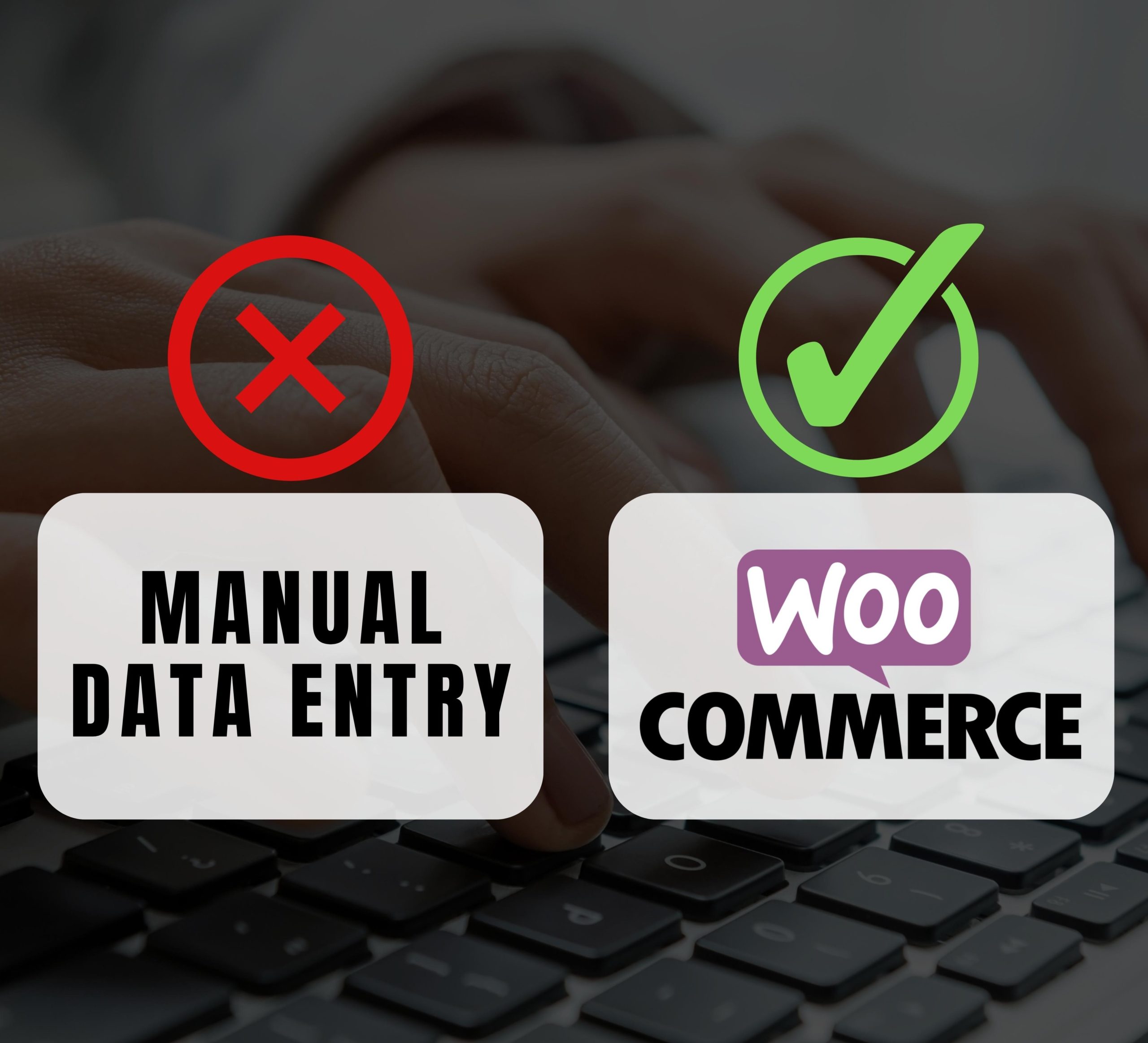Shipping costs can significantly impact the profitability of an e-commerce business. To address this challenge, businesses are increasingly turning to automation. By accurately calculating shipping rates, eliminating manual data entry, and streamlining shipping processes, e-commerce businesses can reduce expenses and boost sales.
This article explores the benefits of automating shipping processes, including the ability to save on e-commerce maintenance fees and increase profit margins. Additionally, automation can enhance customer satisfaction by providing accurate and timely shipping information.
By cutting plugin costs for parcel carriers, businesses can further optimize their shipping operations. Ultimately, embracing comprehensive shipping solutions allows businesses to grow and thrive in an increasingly competitive e-commerce landscape.
Key Takeaways
-
- Reduce the number of plugins (to one plugin for all carriers) instead of having a separate plugin for each carrier. By using a single plugin that works with all carriers, one solution does it all.
- Solidify your eligibility to receive highly discounted rates from Canpar, Purolator, DHL, Loomis, and others for parcel and freight shipping and apply your preferred payment methods.
- Hold VIP status as a valued customer with exclusive access to a dedicated local customer support team for your e-commerce shipping.
- Take advantage of the services of a certified Google and Shopify partner with free consultation.
- Receive free development and integration services for your website and shopping apps.

Accurately Calculate Shipping Rates
The accurate calculation of shipping rates is crucial for businesses aiming to optimize their shipping costs and streamline their operations. To achieve this, businesses can utilize various tools and techniques, such as the WooCommerce shipping calculator, APIs, and plugins. These resources assist in automating the process of determining accurate shipping rates, ensuring businesses are not overpaying or undercharging for shipping services.
The WooCommerce shipping calculator is a widely used tool that allows businesses to calculate shipping costs based on factors such as package weight, dimensions, and destination. By inputting these details, businesses can obtain accurate shipping rates, eliminating the need for manual calculations and potential errors.
APIs, or application programming interfaces, are another valuable resource for businesses looking to accurately calculate shipping rates. These APIs provide access to real-time shipping data from major carriers, enabling businesses to retrieve up-to-date rates based on package specifications and destination. By utilizing free APIs, businesses can ensure their shipping rates are always accurate and reflective of current market conditions.
In addition to these tools, businesses can also optimize their shipping settings within their e-commerce platforms. By configuring the appropriate settings, businesses can automate the process of generating shipping labels and tracking information. This not only saves time but also reduces the chances of human error in creating and managing shipping documentation.
Furthermore, businesses can take advantage of the plugins that are available for e-commerce platforms. These plugins offer additional functionalities such as automatic rate calculation, label generation, and tracking integration, further streamlining the shipping process. By leveraging these plugins, businesses can cut shipping costs by ensuring accurate rate calculation and efficient label generation.
The accurate calculation of shipping rates is essential for businesses looking to optimize their shipping costs and streamline operations. Utilizing resources such as the WooCommerce shipping calculator, APIs, and plugins enables businesses to automate the process, ensuring accurate rates and reducing manual errors.

Eliminate Manual Data Entry
To streamline operations and improve efficiency, the elimination of manual data entry can be pursued as a means to reduce the need for human intervention and enhance accuracy in the shipping cost optimization process. One way to achieve this is through the development and implementation of APIs in WooCommerce. By integrating this API, businesses can automate the retrieval of shipping data, eliminating the need for manual input and reducing the chances of errors that can occur during data entry. These APIs allow for seamless communication between the shipping platform and the e-commerce system, ensuring that accurate and up-to-date shipping rates are always available.


Another method to eliminate manual data entry is by utilizing plugins. These plugins can be integrated into the e-commerce system to automate the retrieval and calculation of shipping rates. They can pull data from various sources, such as shipping carriers or databases, and automatically populate the necessary fields in the shipping cost optimization process. By removing the need for manual data entry, businesses can save time and resources, allowing them to focus on other aspects of their operations.
The elimination of manual data entry is a crucial step in reducing shipping costs while increasing accuracy. By utilizing APIs in WooCommerce, businesses can streamline their operations, reduce human intervention, and enhance accuracy in the shipping cost optimization process.
Connect with an SEO marketing expert

Streamline Shipping Processes
Streamlining shipping processes involves optimizing operational procedures to enhance efficiency and minimize unnecessary complexities. By streamlining shipping processes, companies can significantly cut shipping costs and improve overall productivity. One key aspect of streamlining shipping processes is implementing automated systems and technologies that eliminate manual tasks and reduce the chances of errors.
Automation plays a crucial role in streamlining shipping processes. It enables companies to automate various tasks such as order processing, label generation, and providing tracking updates. By automating these processes, companies can eliminate the need for manual data entry and reduce the chances of errors that can result from human intervention. This not only saves time but also enhances accuracy, leading to improved customer satisfaction and reduced shipping costs.
Another aspect of streamlining shipping processes is integrating different systems and platforms. This integration allows for seamless communication and data sharing between various stakeholders involved in the shipping process, such as suppliers, carriers, and customers. Through integrated systems, companies can track shipments in real-time, manage inventory levels efficiently, and optimize routes for cost-effective delivery.
Moreover, streamlining shipping processes involves analyzing data and gathering insights to identify areas for improvement. By leveraging data analytics, companies can identify bottlenecks, optimize warehouse layouts, and dispatch shipments more efficiently. This data-driven approach enables companies to make informed decisions, minimize shipping delays, and maximize operational efficiency.
Streamlining shipping processes through automation, integration, and data analysis is crucial for cutting shipping costs and enhancing overall efficiency. By implementing these strategies, companies can optimize their operational procedures, reduce complexities, and achieve significant cost savings.
Boost Sales and Reduce Cart Abandonment
By implementing effective strategies, companies can enhance sales and reduce instances of customers abandoning their carts, ultimately leading to increased revenue and improved customer satisfaction. Boosting sales and reducing cart abandonment are crucial for businesses to maximize their profitability and maintain a loyal customer base.
One strategy to achieve this is by offering incentives to encourage customers to complete their purchases. Providing discounts or free shipping options can motivate customers to proceed with their transactions, as they perceive added value in doing so. Additionally, implementing a streamlined checkout process can significantly reduce cart abandonment rates. By minimizing the number of steps required to complete a purchase and providing clear instructions and guidance, companies can enhance the overall customer experience and increase the likelihood of successful conversions.
Furthermore, employing remarketing techniques can help businesses recover abandoned carts. By sending targeted emails or notifications to remind customers about their unfinished purchases, companies can re-engage customers and prompt them to return to their carts. These reminders can be personalized based on the specific items left in the cart, further increasing the chances of conversion.
By adopting effective strategies such as offering incentives, streamlining the checkout process, and employing remarketing techniques, companies can boost sales and reduce cart abandonment. This not only leads to increased revenue but also enhances customer satisfaction and loyalty, fostering long-term success in the competitive marketplace.
Save on E-Commerce Maintenance Fees
Implementing cost-saving measures in e-commerce maintenance can contribute to maximizing profitability and efficiency for businesses operating in the digital marketplace. E-Commerce maintenance fees can often represent a significant expense for online businesses, cutting into their bottom line. However, by taking steps to save on these fees, businesses can allocate more resources to other areas of their operations.
One way to save on e-commerce maintenance fees is by regularly auditing and optimizing website performance. This includes identifying and fixing any issues that may be slowing down the website or negatively impacting the user experience. By ensuring that the website is running smoothly and efficiently, businesses can reduce the need for frequent maintenance and troubleshooting, ultimately saving on associated costs.

Implementing cost-saving measures in e-commerce maintenance is crucial for maximizing profitability and efficiency. By regularly auditing website performance, leveraging automation tools, and exploring alternative shipping options, businesses can significantly reduce their e-commerce maintenance fees and allocate resources to other important aspects of their operations.

Another cost-saving measure is to leverage automation tools to streamline and simplify maintenance tasks. These tools can automatically perform routine tasks such as updating software, backing up data, and monitoring website performance. By reducing the need for manual intervention, businesses can save both time and money on maintaining their e-commerce platform.

Efficient and Cost-Effective Shipping Methods
Efficient and Cost-Effective Shipping Methods
In order to further optimize e-commerce operations and reduce costs, it is crucial to implement efficient and cost-effective shipping methods. Shipping costs can significantly impact the overall profitability of an e-commerce business, making it essential to explore strategies that can help cut these expenses automatically. By employing streamlined shipping processes, businesses can enhance their operational efficiency and reduce the financial burden associated with shipping.
One approach to achieving efficient and cost-effective shipping is through the utilization of technology-driven solutions. Automation tools can aid in the selection of the most economical shipping options, comparing rates across different carriers, and ensuring that packages are delivered in an optimal manner. Additionally, implementing a centralized inventory management system can help reduce shipping costs by optimizing order fulfillment and reducing the number of split shipments.
Moreover, partnering with fulfillment centres strategically located across different regions can also contribute to cost savings. This approach allows businesses to store inventory closer to their customers, minimizing shipping distances and transit times. Furthermore, fulfillment centres often benefit from economies of scale, enabling businesses to negotiate lower shipping rates due to the larger volumes they handle.
By adopting efficient and cost-effective shipping methods, e-commerce businesses can not only reduce their expenses but also enhance customer satisfaction through faster and more reliable deliveries. Embracing technology-driven solutions and strategically partnering with fulfillment centres can contribute to automating shipping processes and creating a competitive advantage in the e-commerce industry.
Increase Your Profit Margins
Increase Your Profit Margins
To enhance profitability, it is crucial to explore strategies that can maximize profit margins in the e-commerce industry. One effective approach is to increase the efficiency of shipping methods. By adopting efficient and cost-effective shipping methods, businesses can reduce their shipping costs and ultimately increase their profit margins.
One way to achieve this is by utilizing automated shipping systems. These systems employ advanced technologies to streamline the shipping process, minimizing human errors and reducing the time required to process orders. By automating tasks such as label printing and order tracking, businesses can significantly cut down on labour costs and improve overall efficiency.
Another strategy is to partner with a business that can negotiate favourable shipping rates with shipping carriers. In doing so, businesses enjoy lower rates, which can directly translate into higher profit margins. Additionally, exploring alternative shipping options, such as letting customers choose the most appropriate level of shipping, can also lead to cost savings.
Furthermore, implementing effective inventory management practices can contribute to increased profit margins. By optimizing inventory levels, businesses can minimize storage costs and reduce the risk of overstocking or stockouts. Utilizing inventory management software, applying demand forecasting strategies, and setting up effective inventory replenishment processes can help achieve this.
Increasing profit margins in the e-commerce industry requires a comprehensive approach that includes efficient and cost-effective shipping methods, favourable shipping rates, and effective inventory management practices. By adopting these strategies, businesses can cut shipping costs and optimize their operations, ultimately leading to improved profitability.
Increase Customer Satisfaction
Increase Customer Satisfaction
Enhancing customer satisfaction is crucial for creating a positive and lasting impression in the e-commerce industry and fostering loyalty and repeat business. In today’s competitive market, where customers have numerous options to choose from, it is imperative for businesses to prioritize customer satisfaction to stay ahead. Satisfied customers are more likely to recommend a business to others, leading to increased brand visibility and potential growth.
One way to increase customer satisfaction is by ensuring prompt and accurate order fulfillment. Customers appreciate timely delivery of their purchases, and any delays or errors can lead to dissatisfaction. Implementing automated systems and processes can help businesses streamline their order fulfillment, reduce the chances of errors, and expedite the shipping process. By automating tasks such as inventory management, order processing, and shipping label generation, businesses can improve order accuracy and speed up shipping times, ultimately enhancing customer satisfaction.
Moreover, providing customers with real-time tracking information can also contribute to their satisfaction. By offering visibility into the shipping process, customers can stay informed about the whereabouts of their purchases and plan accordingly. This transparency creates a sense of trust and confidence in the business, as customers feel more in control of their orders.
Prioritizing customer satisfaction is vital for success in the e-commerce industry. By focusing on efficient order fulfillment and providing real-time tracking information, businesses can enhance customer satisfaction, foster loyalty, and ultimately increase their chances of thriving in a competitive market.
Cut Plugin Costs for Parcel Carriers
Cut Plugin Costs for Parcel Carriers
Implementing cost-saving strategies for parcel carriers’ plugins can contribute to optimizing e-commerce operations and enhancing overall business efficiency. With the increasing reliance on parcel carriers for shipping goods, businesses are constantly seeking ways to minimize the costs associated with their services. One effective approach is to cut plugin costs for parcel carriers.
Reducing plugin costs can have a significant impact on a company’s bottom line. By exploring alternative options, businesses can save substantial amounts of money. These savings can be reinvested in other areas of the business or passed on to customers through reduced shipping fees. In turn, this can enhance customer satisfaction and loyalty.
Moreover, cutting plugin costs can lead to improved operational efficiency. Plugins facilitate seamless integration between e-commerce platforms and parcel carriers, allowing for automated shipping processes. By reducing expenses related to these plugins, businesses can allocate resources to other areas of their operations, such as marketing or product development. This, in turn, can lead to a streamlined workflow, faster order processing, and ultimately increased customer satisfaction.
Implementing cost-saving strategies for parcel carriers’ plugins can have numerous benefits for businesses. By reducing plugin costs, companies can optimize their e-commerce operations, enhance overall efficiency, and improve customer satisfaction. It is essential for businesses to explore various options and negotiate favourable pricing to maximize these benefits.

Get the Most Out of Your Shipping Process with Our Comprehensive Shipping Solutions
By embracing comprehensive shipping solutions, businesses can experience exponential growth and expansion opportunities. These solutions provide businesses with a range of tools and services to streamline their shipping processes, reduce costs, and enhance customer satisfaction.
One key benefit of comprehensive shipping solutions is the ability to automate various aspects of the shipping process. Through the use of advanced technology, businesses can automate tasks such as order processing, label generation, and tracking updates. This automation not only saves time and effort but also minimizes the risk of human error, resulting in more accurate and efficient shipping operations.
Other aspects of shipping can also be automated. For international shipments, the creation of commercial invoices by SKU can automatically occur. Commodities can be uploaded by importing a file; they don’t have to be addressed one at a time or for every shipment.
Shipper signatures can be stored on file and can automatically be placed on commercial invoices, negating the need for paper copies. When initially setting up SKUs, shipping rules can be set to include parcel dimensions and other important information.

Additionally, comprehensive shipping solutions offer businesses access to a wide range of carriers and shipping options. This allows them to choose the most cost-effective and efficient methods for each shipment, depending on factors such as destination, size, and weight. By comparing rates and services from different carriers, businesses can optimize their shipping strategies and reduce costs significantly.
Furthermore, these solutions often provide businesses with detailed analytics and reporting capabilities. This allows businesses to gain valuable insights into their shipping performance, identify areas for improvement, and make data-driven decisions. By analyzing shipping data, businesses can identify trends, track customer satisfaction, and make adjustments to their shipping strategies accordingly.
Embracing comprehensive shipping solutions can bring numerous benefits to businesses. From automation and cost reduction to improved efficiency and customer satisfaction, these solutions offer businesses the tools they need to grow and expand in today’s competitive market.

Reduce Your E-Commerce Shipping Costs to Grow Your Business
In conclusion, implementing automated shipping solutions can greatly benefit businesses by reducing costs and improving efficiency. By accurately calculating shipping rates, eliminating manual data entry, and streamlining shipping processes, companies can save on maintenance fees and increase profit margins.
Additionally, automated shipping can boost sales, reduce cart abandonment, and enhance customer satisfaction. By cutting plugin costs for parcel carriers and enjoying comprehensive shipping solutions, businesses can experience growth and success in the e-commerce industry.
Zigma Internet Marketing offers an incredible opportunity to significantly decrease your overall shipping expenses by providing complimentary development services. Not only that, but they go above and beyond by offering expert advice on how to optimize your courier costs and services.
This invaluable guidance will not only save you money but also enable you to redirect those funds towards the expansion and success of your e-commerce enterprise. Take advantage of this remarkable offer and watch your business thrive!





